

In his piece “Here’s how you can make big money from small stock investments” Sanjay Kumar Singh has profiled a few amateur investors who have discovered the secret formula to finding winning stocks.
Sanjay first points out that the reason amateur investors fail in the stock market is because they buy stocks only at the fag end of the rally. Also, their investment decisions are based on tips from brokers, friends and experts on television shows. They don’t research the stocks they buy, nor do they diversify their portfolios. They also tend to sell off their winners early and hold on to losers endlessly. Little wonder that for most retail investors, the stock market is a zero sum game, he says.
However, he then profiles real life people like you and me who have made extraordinary gains from stock investments.
The eight investors profiled are Venkatesh Kumar, 40 (portfolio value Rs. 27 lakh), S.G. Raja Sekharan, 52 (portfolio value Rs. 1 crore), Hari Krishnan, 33 (portfolio value Rs. 23 lakh), T. S. Ramchandran, 55 (portfolio value Rs. 30 lakh), Subash Nayak, 31 (portfolio value Rs. 33 lakh), Ravi Mahalingam, 41 (portfolio value Rs. 40 lakh), T.V. Rajalakshmi, 42 (portfolio value Rs. 4.50 crore) and Vivek Gautam, 45 (portfolio value Rs. 1 crore).

Interestingly, each investor started his investment journey on the wrong note – by incurring heavy losses due to bad choices. However, instead of getting disheartened, each of them understood that their technique was to blame for the losses and not the stock market.
Once the realization dawned on them that their losses in the stock market was caused by poor stock selection, knee-jerk reactions and lack of foresight and discipline, it was smooth sailing for the enlightened bunch of super investors.
Each of the investors has set out in detail the mistakes that he or she made and the strategy that they now adopt to ensure consistent success in the stock market.
Their advice can be distilled into a few actionable points:
(i) Never buy a stock unless you have fully understood its fundamentals and growth prospects. For this, you have to read annual reports and analysts’ reports;
(ii) Don’t buy (or sell) on an impulse. Don’t react to short-term “noise”. Avoid knee-jerk reactions;
(iii) Keep an eye on the valuations and what you are paying for the stock. Don’t buy a stock only because it is “cheap”. At the same time, don’t ignore a stock because it looks “expensive”;
(iv) Insist on buying quality stocks. Generally speaking, a good stock at a high price is a better investment than an average stock at a very attractive valuation;
(v) Once you are sure you have bought a stock with good fundamentals, be patient. The minimum holding period should be 3 to 5 years for compounding to work its magic;
(vi) Don’t sell a winning stock unless the fundamentals of the company or business have deteriorated or the stock is extravagantly priced;
(vii) Keep a concentrated portfolio of not more than 10-15 stocks (with a minimum 5% allocation to each stock). This will force you to pick only the best stocks and also enable you to track them closely;
What is remarkable is that the advice given by these amateur investors is similar to the advice given by stalwarts like Basant Maheshwari and Akash Prakash of Amansa Capital. We need to pay serious attention to it and implement it in our day to day life.
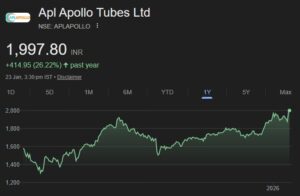
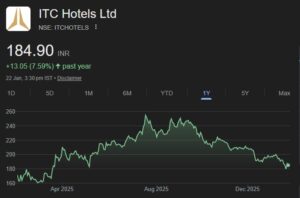
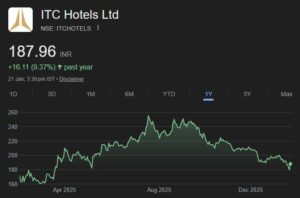
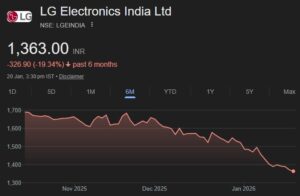
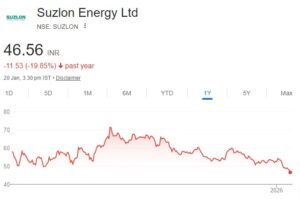
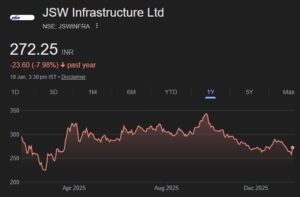
Point no 5 doesn’t always work. I bought Tata Global Beverages in Nov 2012. By all means and as per all experts a brilliant stock. It’s still languishing way below the cost price with no hopes of the compounding magic coming in.
I guess depends also on the valuation at which you enter the stock. If it is fully priced for next 3 year upside it can languish at the same level till its valuation becomes attractive again.
Amit,
Tata global is in Coffee & Tea commodity business, which is quite seasonal and unfortunately Coffee and Tea prices are falling for most of the last 2 years.
I guess, if you wish, you need to wait until market demand peaks and coffee prices go up.
Bhs
If you can understand fundamentals of company how exactly are you an amateur then.
I can plot down few points that an amateur investor can apply while investing. As amateur you invest in financial condition of company and it isn’t very much different from your.
1. Your work, your job serves you money regularly. In case you don’t have work you don’t have inflow of money. So look for a company that have very good order book or lot of work. A good order book usually means company have work for rest of the year, which in short means they’ll be making money. In case they don’t have order book, look for do they have expansion plan. Expansion plan is result of increased demand in market, more sales of products usually means more profit.
2. If you earn 50,000 and pay 25,000 every month as EMI for home loan. Then in spite of earning 50,000 you’ll only get 25,000. If your home loan gets clear, you’ll keep everything you earn thus by doubling financial capacity. Same also applies to business, when a business clears it’s loan they can keep everything they earn thus increasing their cash flow. Clearing of company’s debt without selling any assets only means they have made massive profits and expecting same in future.
3. Considering your regular salary if you judge by end of year you might have saved 2 lakh rupees(an estimate) if everything goes fine. But if you get 25,000 bonus for 2 months then you’ll see your estimate will grow by 50,000. Which means you made extra money, this also applies to business. If a company declares they are increasing their quarterly estimate, then it clearly means the previous estimate they had set has been already achieved or might get achieved in 2-3 weeks. Buy and hold their stocks till their quarterly result day. This is one of the best short term strategy and I have never seen failing.
4. When to sell is one of the biggest questions ? Sell it (1) If you have worth while profit and (2) You just happen to find out another company that matches any one of the above conditions. In short I mean make a switch while your stock is still moving up. Don’t bother about profits that you never made on stock which you never bought or sold early. To make good money in stocks, you have to keep feeling of guilt, fear and greed thousand miles away from yourself. A profit is a profit either it is made on A stock or B stock, for the time it is worth while there is no reason to complain.
5. You should avoid company whose industry is currently suffering in spite of the fact they satisfy all above condition. For example, power industry is suffering badly so all stocks that have good order books for power infrastructures are also suffering. Do not invest in industry that is under performing as whole. Second do not invest in stock which is down more than 10% than it’s 52 week high. Third type of stocks that you should avoid is with daily high volatility.
6. Give time to your investments to return profits.
these are excellent points!
Hilarious, this author contradicts his own suggestions:
In the first paragraph he says “diversify their portfolios” and then in 7th point down the list he suggests to ” Keep a concentrated portfolio of not more than 10-15 stocks”.
How can one diversify with investment in just 10 stocks?
With the current growth drivers in place I suggest one should reasonable try and diversify to about 50 quality stocks all in all.
My 2 Cents
Bhs